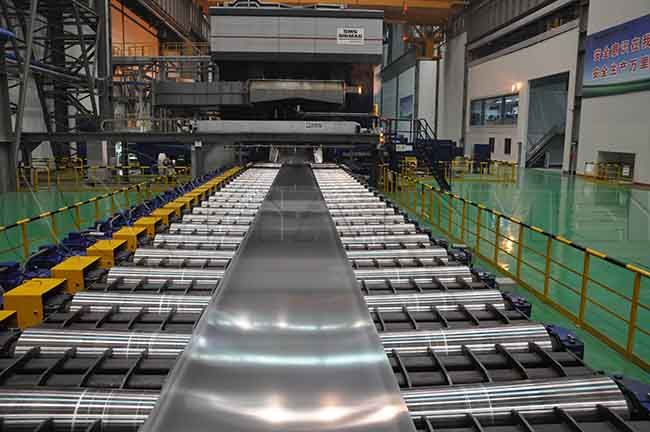What Is The Best Aluminum for Salt Water
According to the location where the material corrodes in the marine environment, the marine environment is divided into five regions: marine atmosphere, splash, ocean tidal range, seawater full immersion and sea mud. What is the best aluminum sheet metal for sale for salt water?
In the marine atmospheric region, due to the high concentration of chloride ions in the thin liquid film on the metal surface, the material is prone to corrosion and failure. In the spray splash area, the working mechanical equipment is affected by the alternation of dry and wet, cold and heat changes, and the corrosion is the most serious; in the seawater full immersion area, although the dissolved oxygen content is low, the marine engineering equipment will still be affected by various types of ions (such as SO42-, Cl-) in seawater, and corrosion damage will still occur on the surface.

In the high-salt, high-humidity, and high-irradiation environment of the ocean atmosphere, a thin liquid film with a high Cl- concentration is formed on the surface of the aluminum alloy, which will continuously erode and destroy the integrity of the oxide film.
Corrosion damage caused by different thicknesses of the thin liquid film is also different. In addition to the formation of oxide film and thin liquid film on the surface of aluminum alloy, pollutants such as SO2, NO, PM2.5 in the industrial marine atmospheric environment will also deposit on the surface of aluminum alloy to form a pollutant layer. These electrolyte solutions with various compositions and thicknesses will lead to very complex corrosion behavior of aluminum alloys in marine and atmospheric regions.
In the seawater immersion area, with the increase of seawater depth, the pH value, dissolved oxygen content, pressure, temperature and other factors also change, so the corrosion behavior of materials in surface seawater is different from that in deep sea.
The marine grade aluminum 5083 was placed in static seawater for immersion corrosion experiments. The results showed that Cl- in seawater would first attach to the active sites on the surface of the aluminum alloy and react with the passivation film to dissolve and destroy it, resulting in the exposure of the matrix. The reaction with the aluminum substrate produced soluble AlCl3, resulting in corrosion pits; after 2 months of testing, the accumulation of corrosion products acted as a barrier to isolate the aluminum substrate from corrosion.
The 5052 and 6061 aluminum alloys were placed in the South China Sea at depths of 800 m and 1 200 m for corrosion experiments. It was found that similar to shallow sea corrosion, pitting corrosion and crevice corrosion at riveting joints occurred in both, but the deep sea corrosion was more serious.
In the deep sea, the decrease of dissolved oxygen content not only promotes the penetration of Cl-, but also increases the nucleation of pitting corrosion, and inhibits the diffusion of oxygen, increasing the sensitivity of pitting corrosion in deep sea environments.
In addition, the pitting corrosion of 6061 aluminum alloy is more serious than that of 5052 aluminum alloy due to the large difference in microcouple potential formed between the MgSi phase in 6061 aluminum alloy and the Al–Fe–Si matrix. In terms of comprehensive performance, the corrosion resistance of 5083 plate is better than 5052 and 6061 aluminum.
Original Source:https://www.marinealu.com/a/what-is-the-best-aluminum-for-salt-water.html
Tags: marine grade aluminum 5083 ,
Prev:The Uses of 5083 and 6061 Sheet Metal in Shipping Industry